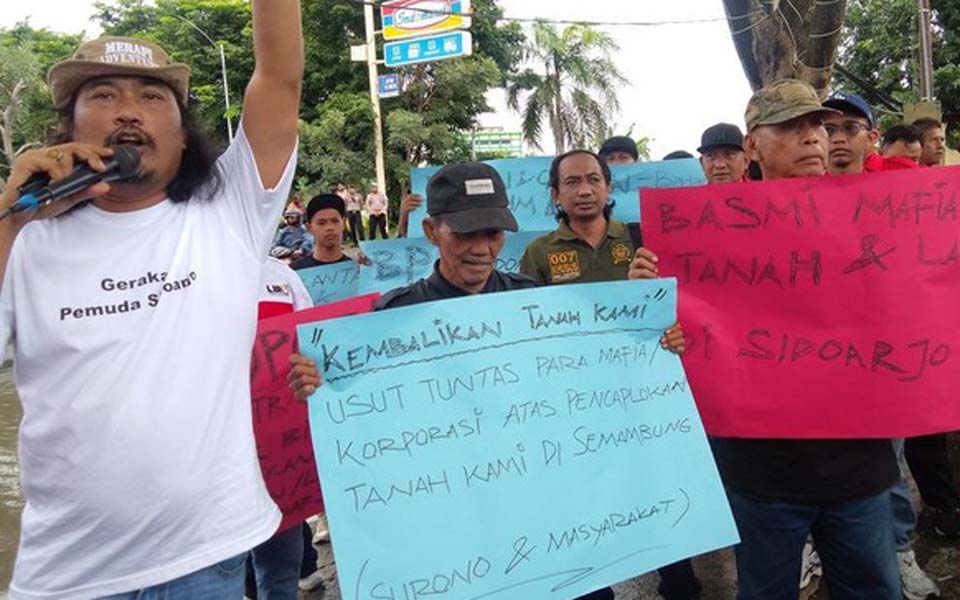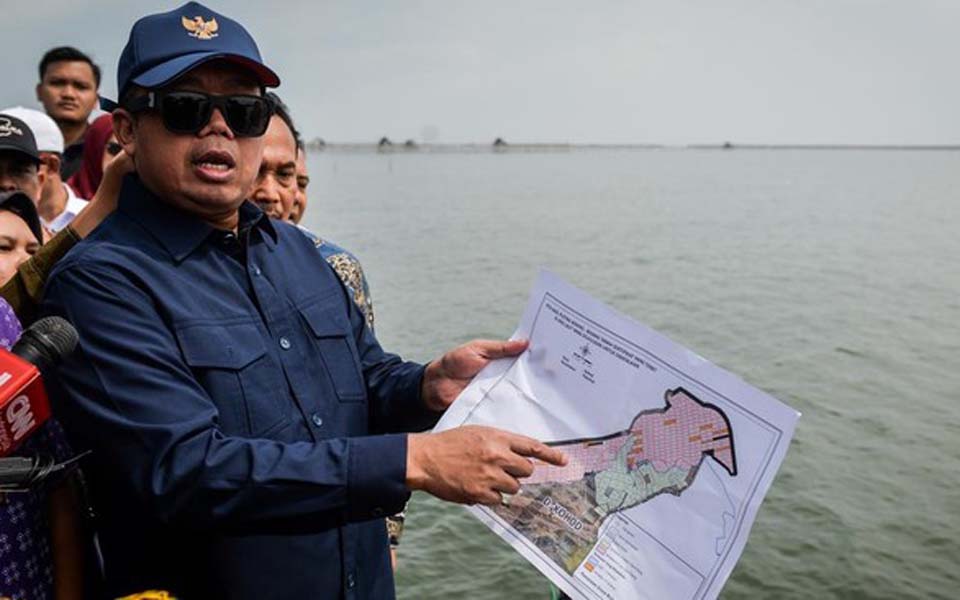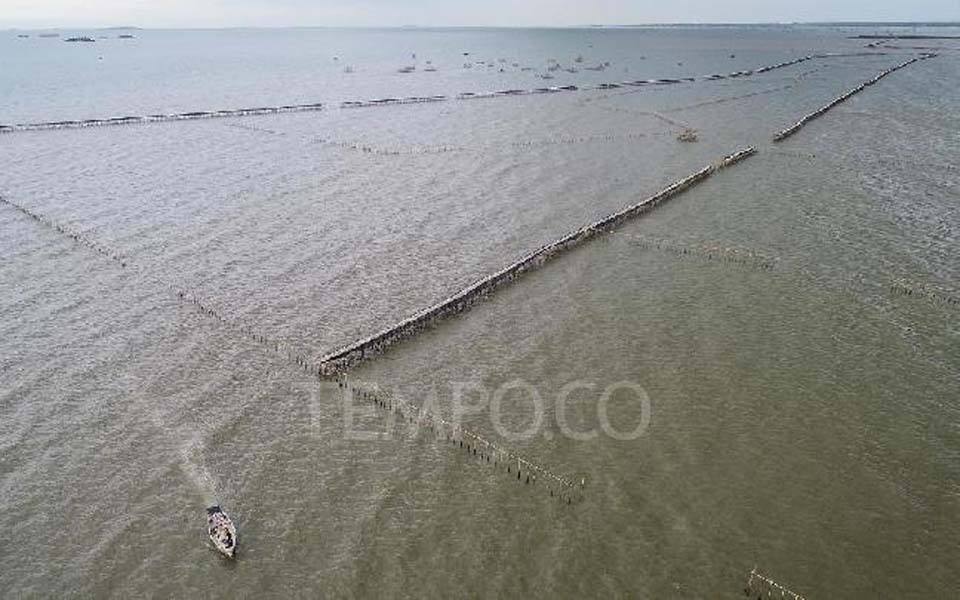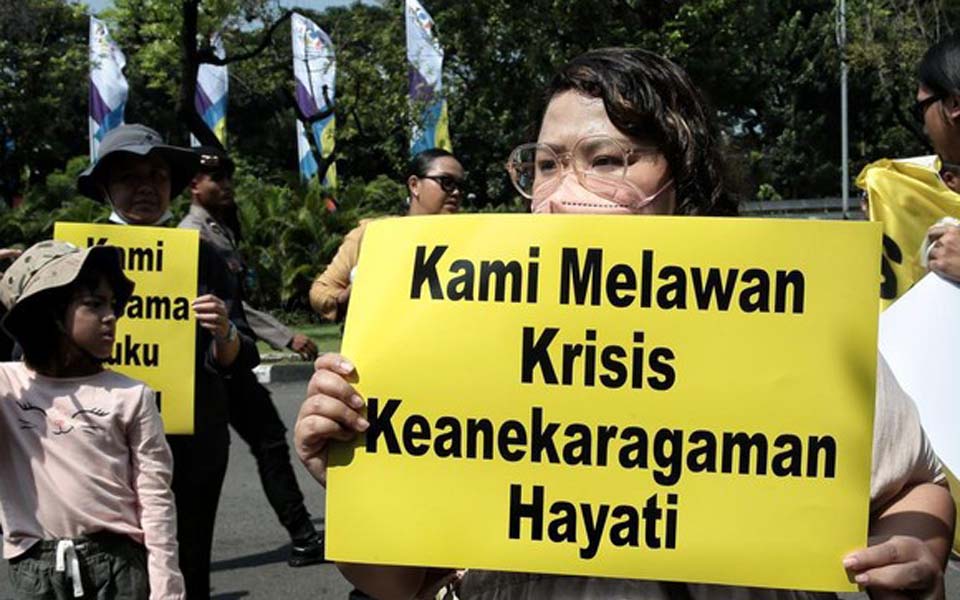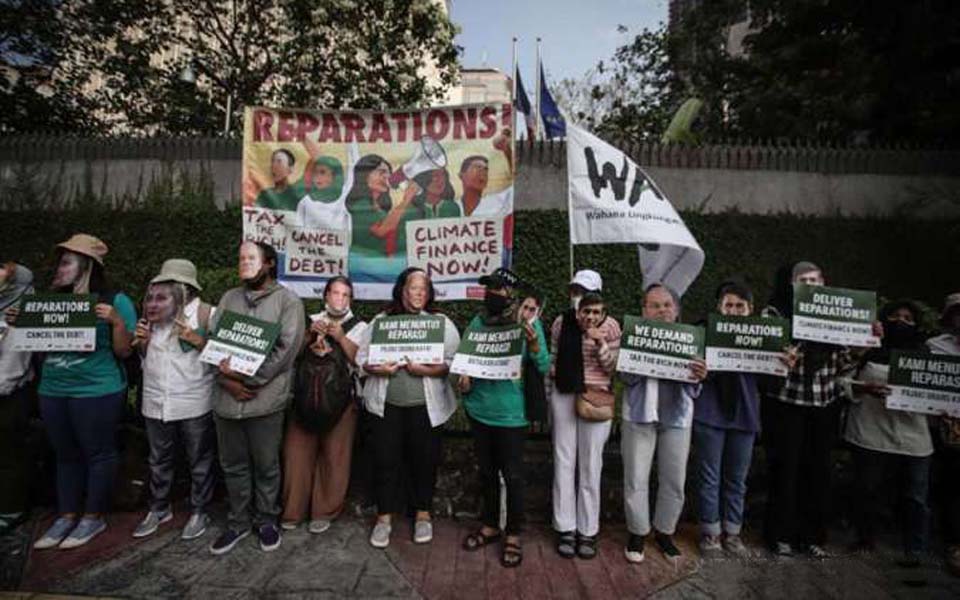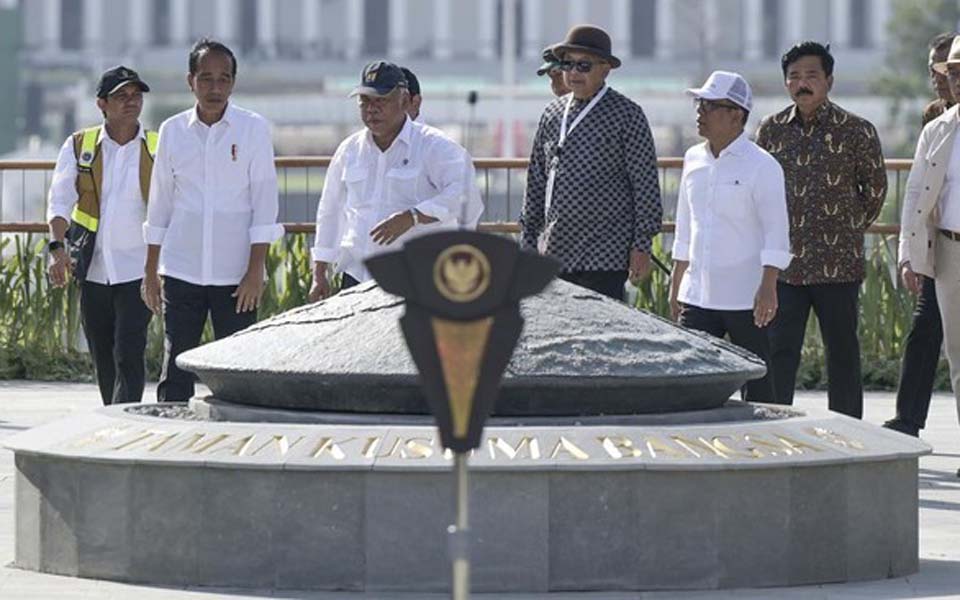Jakarta – The Indonesian Forum for the Environment (Walhi) has outlined at least three environmental problems found from the results of a Strategic Environmental Study (KLHS) on Indonesia's proposed site for a new capital city (IKN) in North Penajam Paser regency, East Kalimantan.
Walhi National Executive Campaign Manager Wahyu Perdana says that the three problems are threats to the water system and the risk of climate change, threats to local flora and fauna and the threat of pollution and environmental damage.
"With the new capital city the KLHS study showed that there are at least three basic problems if the relocation of the capital city is pushed through", said Perdana in a written release on Wednesday January 12.
Perdana said that one of the threats to the water system is related to the hydrological system. In the KLHS it said that the system will be disrupted and that the ground water is inadequate.
A Walhi report compiled together with several other environmental non-government organisations (NGOs) also cited the location of the new capital as being in a strategic region which supports the water resource needs of five other regions simultaneously.
The five regions are Balikpapan, North Penajam Paser, the coastal areas of Kutai Kartanegara, in particular Samboja sub-district, Muara Jawa sub-district along with Loa Kulu sub-district and the southern part of Samarinda city.
Walhi said that even under normal conditions, Balikpapan city is often confronted by a lack of clean drinking water because Penajam Paser is the source of water for parts of Balikpapan.
"Although in the regional spatial plan it designates 52 percent of the city's area as protected regions, residents of Balikpapan city will still suffer water availability problems", read part of the report titled "A New Capital City, For Who?".
Aside from problems with the hydrological system, Perdana said that the other problem is that the water catchment area will be disrupted which carries the risk of water pollution and drought.
"Clean water resources are not sufficient throughout the year, [plus there is] the inability to manage waste water produced by the new capital city and its population", he said.
The second problem is related to the threat to flora and fauna, one of which is increasing the risk of human and animal conflicts. "Including cases which have already happened with crocodiles", he said.
Furthermore, it will also threaten flora and fauna which have an important ecosystem service function. In addition to this, the construction of the new capital city will threaten the 2,603 hectare mangrove ecosystem in the Balikpapan Bay.
The third problem is related to the threat of pollution and environmental damage. Perdana said the location of the new capital city is in an area vulnerable to oil spills.
"In previous cases, the area has been impacted upon by pollution by oil spills from [the state oil and gas company] Pertamina", he said.
Perdana said that the flow on effect of high pollution levels risks reducing nutrients for coastal areas and its waters.
Furthermore, the large number of mining concessions and the many open mine pits which have not been filled in will also increase the risk to ground water, surface water and coastal areas being polluted.
This is because there are some 162 mining concessions, palm oil plantations and coal fired power plants located in the area of the new capital city which will cover some 180,000 hectares, equivalent to three times the size of Jakarta province.
"This does not yet include seven property development projects in Balikpapan city", he said.
In addition to this, Walhi also sees the new capital city as worsening ecological disasters and taking over areas managed by the people.
"Floods which occurred in the IKN Ring I area in late 2021, confirm that this area is unsuitable based on the KLHS as the location for the IKN", he said.
As has been reported, the National Development Planning Agency (Bappenas) says that the role of the country's capital city which is still being performed by Jakarta will be moved to East Kalimantan in 2024.
This is embodied in the substance of the Draft Law on the State Capital City (RUU IKN).
The RUU IKN meanwhile is scheduled to be enacted by the House of Representatives (DPR) on Tuesday January 18. DPR Speaker Puan Maharani claims that they are only waiting on the results of deliberations by the DPR's special committee on the RUU IKN and the government related to the articles contained in the draft law. (yla/gil)
[Translated by James Balowski. The original title of the article was "Walhi Beberkan 3 Masalah Krusial Lingkungan di Ibu Kota Negara Baru".]







